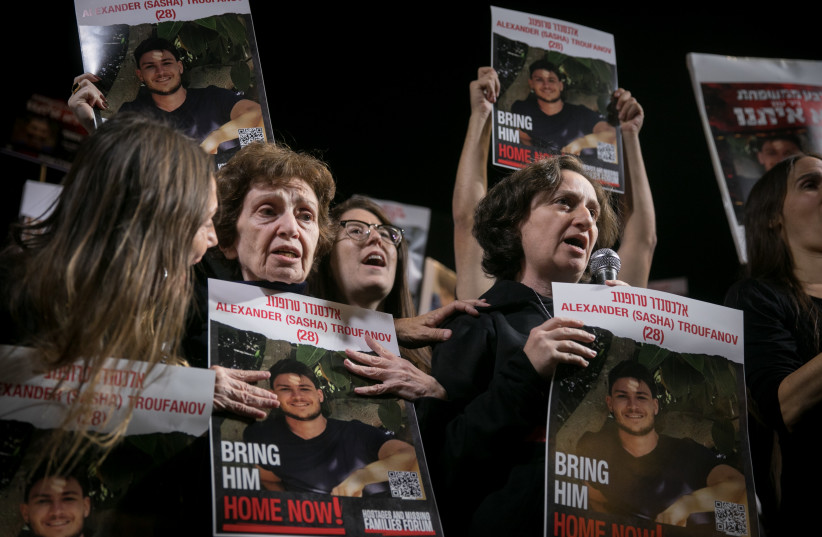The breakdown in the temporary truce between Israel and Hamas following the terror group’s violation of the ceasefire was to be expected.
During the nearly weeklong pause, both sides were able to claim an advantage. For Israel, seeing 110 captives – 86 Israelis and 24 foreigners – freed during dramatic nightly releases was a cathartic event that brought the country together in a giant embrace of the reunited families.
Hamas, meanwhile, was able to regroup, assess its situation, and prepare for the next round of warfare.
Israel had hoped that the deal, which initially focused on freeing women and children, would be extended into Sunday. Defense Minister Yoav Gallant said there were still 15 women and two children were still being held hostage in Gaza.
However, in explaining why Hamas had decided not to continue the agreement and instead start firing rockets toward Israel again, Deputy Hamas chief Saleh Al-Arouri made new demands, saying that no more prisoners would be exchanged with Israel until there was a permanent ceasefire in Gaza and all convicted Palestinian prisoners, including murderers, in Israeli jails were released.

Prime Minister Benjamin Netanyahu, speaking to the nation on Saturday night, accused Hamas of violating the deal and said “the war would resume.”
US Secretary of State Antony Blinken told reporters in the United Arab Emirates on Friday that Hamas had breached the deal. The temporary truce, he said, “came to an end because of Hamas; Hamas reneged on commitments it made. In fact, even before the pause came to an end, it committed an atrocious terrorist attack in Jerusalem [on Thursday], killing three people and wounding others, including Americans…. It began firing rockets before the pause had ended. And as I said, it reneged on commitments it made in terms of releasing certain hostages.”
Mossad director David Barnea was in Doha, where he attempted to put the war back on hold to enable more hostage releases. But as talks broke down, he and his team returned to Israel on Saturday night.
“The terrorist organization Hamas did not uphold its part of the agreement, which included the release of all of the children and women according to a list that was given to Hamas and approved by it,” the Prime Minister’s Office stated.
Israel did everything possible to keep the truce going while Hamas stonewalled, deceived, and made it clear that it couldn’t be relied upon to uphold any agreement to enable more hostages to come home.
A heart-wrenching rally
Against that backdrop, many thousands of Israelis attended a rally Saturday night at Tel Aviv’s Hostage Square, among them family members of captives who had been released.
Amid heart-wrenching testimony from some of the family members – including Hadas Calderon, whose children Sahar, 16, and Erez, 12, were recently released from captivity, and Elena Trupanov, mother of freed hostage Sasha Trupanov – the purpose of the gathering was to convey the urgency of getting the remaining hostages released.
“Every day could be their last; we cannot abandon them,” the families of the captives urged. “We are deeply concerned for the well-being of everyone still there. We call upon the prime minister and the war cabinet to meet with us tonight and provide a road map for bringing everyone back home today.”
As heartfelt as the appeals were, they pointed to a growing chasm among those Israelis who favor acquiescing to all of Hamas’s demands for an all-encompassing deal that would free the remaining hostages and those who want to forge ahead with the ground operation to remove Hamas from power.
As the country’s political and military leaders have rightly pointed out, the success in forcing Hamas to agree to release the 110 hostages was due to the IDF’s military campaign in Gaza. Only such overwhelming pressure on Hamas can enable the release of the remaining 130 or so captives still held by Hamas.
Both sides of the equation, hostages first or toppling Hamas first, have validity, but presenting a unified national front at this time is of utmost importance. We must keep in mind that the common enemy is Hamas, not each other.
